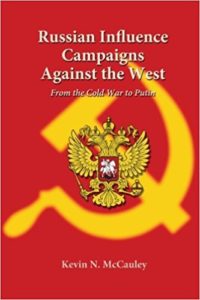 In a rare move, some members of the British Parliament are traveling to Washington this week to question Facebook, Google and Twitter about fake news and the spread of misinformation on their platforms. Experts say that by coming to the United States, U.K. officials are signaling how seriously they’re treating the issue, The Washington Post reports:
In a rare move, some members of the British Parliament are traveling to Washington this week to question Facebook, Google and Twitter about fake news and the spread of misinformation on their platforms. Experts say that by coming to the United States, U.K. officials are signaling how seriously they’re treating the issue, The Washington Post reports:
The House of Commons’ Digital, Culture, Media and Sport Committee will hold a hearing Thursday as part of an evidence-gathering mission to understand how disinformation campaigns and false news reports affect British elections and society. This is the first time a House of Commons committee will broadcast a public hearing live from outside the United Kingdom. Representatives from the tech companies, media researchers and news industry executives will gather before the 11-person, cross-party committee at George Washington University.

EU vs Disinfo
“The committee understands that the businesses that created this moral panic originated here. And they recognize that we are ahead of them in confronting it from a policy perspective and a national conversation perspective,” said David Carroll, a professor of media design at Parsons School for Design, who will speak as an expert witness at the hearing.
The Kremlin has a troika of fears about the West and NATO. These do not revolve around Russia’s national security but are based on profound anxieties about the future of the Putin administration, writes CEPA analyst Janusz Bugajski:
- In the first place, the Kremlin president has anchored his domestic legitimacy on restoring Russia’s great power status and reining in neighbors that have veered away from Moscow. Such ambitions are blocked when aspirants enter NATO and benefit from its core principle of mutual defense. And although Russian security is not challenged by any country’s accession to NATO, Moscow’s ability to control their security dimensions and foreign policy orientations is largely thwarted. In this sense, NATO is an effective deterrent against Russia’s threat.
 The second fear for the Putinists is that NATO is a source of attraction for other post-Soviet states, including Russia’s allies. Unlike NATO and the EU, Moscow’s alliances are not voluntary but consist of countries trapped in a dependency relationship based on blackmail, bribery and threats. In seeking genuine national independence, several capitals have turned to Western institutions for help and protection. When they do, Moscow inverts reality by claiming that it is being surrounded by enemies and needs to pursue an aggressive posture to combat them…
The second fear for the Putinists is that NATO is a source of attraction for other post-Soviet states, including Russia’s allies. Unlike NATO and the EU, Moscow’s alliances are not voluntary but consist of countries trapped in a dependency relationship based on blackmail, bribery and threats. In seeking genuine national independence, several capitals have turned to Western institutions for help and protection. When they do, Moscow inverts reality by claiming that it is being surrounded by enemies and needs to pursue an aggressive posture to combat them…
- Third, and most importantly, Moscow fears NATO as the security core of Europe’s development that challenges the credibility of Russia’s ruling dictatorship. Not surprisingly, the Kremlin’s main fear over Ukraine was the prospect that its large neighbor would be transformed into a democratic, unified and prosperous state that achieves EU accession and NATO membership. Such a model of development can become increasingly attractive for Russia’s citizens.
Social media firms aiding Russia?
Social media companies are helping the Kremlin to undermine democracy, said Robert Hannigan in a recent interview with the BBC. Social media companies are “massively rich” and “have huge power,” said Hannigan, who headed GCHQ (the UK’s NSA) from 2014 to 2017. They possess “global reach and global power, not just of money but of data that individual governments don’t have.”

Hamilton 68
Russian-influenced Twitter accounts are test-running hashtags designed to stoke anger against “deep state” forces, according to analysts at Hamilton 68, a website that tracks Russian-influenced Twitter accounts. Last weekend, a host of new hashtags trended in the network of accounts monitored by Hamilton 68, POLITICO reports:
None of those have taken hold, but the flurry of new efforts indicated to Bret Schafer, an analyst for the Alliance for Security Democracy, which runs Hamilton 68, that the Russians would continue to push issues related to the “deep state.” “There’s still a ton of activity,” Schafer said. “It does look like they’re looking for the next hashtag. … They’re clearly looking for the next step in this process.”
Tech Companies Grapple With Disinformation
It took a long time for U.S. social media companies to acknowledge their role in spreading misinformation during the 2016 U.S. election. Lorand Laskai, research associate for the Council on Foreign Relations’ Asia program, examines how they got there in four acts. Read more »
 Now that Russia has shown how informational subterfuge can upend established democracies, China will surely be taking some pages from the Kremlin’s playbook. Chinese President Xi Jinping has made it clear that maintaining domestic stability and burnishing China’s image abroad is the name of the government’s game, analyst Kent Harrington writes for Project Syndicate:
Now that Russia has shown how informational subterfuge can upend established democracies, China will surely be taking some pages from the Kremlin’s playbook. Chinese President Xi Jinping has made it clear that maintaining domestic stability and burnishing China’s image abroad is the name of the government’s game, analyst Kent Harrington writes for Project Syndicate:
Similarly, strategists at the People’s Liberation Army (PLA) are likely poring over the Kremlin’s handiwork to inform their own cyber-war tactics. Chinese strategic thinking about “political warfare” holds that an adversary’s political, social, and economic institutions – particularly the media – should be targeted before a shooting war ever begins. To that end, Russia’s diffusion of bogus news and conspiracy theories through its state-funded media outlets RT and Sputnik could prove instructive.

You Tube
The “fake news” narrative disturbs Azerbaijani journalist Mehman Aliyev (left) on several levels, notes Alex Raufoglu (@ralakbar), a Washington-based journalist and press freedom advocate. As well as serving as a quick and presumably presidential way to try to discredit reporting and media outlets, it also could be used to call into question standard journalistic practices, such as the judicious use of unnamed sources, and to amplify shortcomings, such as the occasional error. In some cases, he notes, the narrative serves to weaken journalism by referring to the claims and chatter on social media or non-journalistic platforms as “news,” whether “fake” or real, Raufoglu writes for The Wilson Quarterly:
But he also knows, including from personal experience, that many journalists are weather-worn and battle-tested. Whether the label is “fake news” or something else, pressure on independent journalism and pressure on the truth itself will continue in much, if not all, of the world. Aliyev certainly didn’t need “fake news” to add to the difficulties of his work, but he acknowledges that solidarity and support is still out there, both domestically and from abroad. “We just have to keep working and keep relying on all the support we can get,” he says.
 Dean Jackson of the NED’s International Forum for Democratic Studies spoke with Maria Ressa (right), a leading Filipina journalist and CEO of Rappler, about her experience working in a rapidly deteriorating media environment and the impact of social media on the trajectory of democracy in Southeast Asia.
Dean Jackson of the NED’s International Forum for Democratic Studies spoke with Maria Ressa (right), a leading Filipina journalist and CEO of Rappler, about her experience working in a rapidly deteriorating media environment and the impact of social media on the trajectory of democracy in Southeast Asia.
The film-maker behind the Oscar-nominated documentary Last Men in Aleppo [see below] has been targeted by a Russian-backed disinformation campaign that seeks to paint him as a terrorist sympathizer in the run up to the Academy Awards, The Guardian reports:
Feras Fayyad spent a year following a handful of volunteer rescue workers in the besieged Syrian city as they rushed towards bombed buildings to try and find people in the rubble. The resulting documentary has earned widespread critical praise and won awards including the Sundance grand jury prize.
Putin’s  Postmodern War Against the West
Postmodern War Against the West
Most importantly, it’s worth remembering that ultimately, hybrid war isn’t so much about crossing swords; it targets societies, notes Patryk Babiracki (@PatrykBabiracki), associate professor of Russian and East European history at the University of Texas at Arlington and the author of Soviet Soft Power in Poland: Culture and the Making of Stalin’s New Empire, 1943-1957.
Perhaps this time of crisis is a chance to take a critical, introspective look at the American collective self. Some propose increased controls within the public sphere, and even censorship, as a way of fighting back. The Baltic states’ relatively long experience with Russian disinformation, however, shows that such responses don’t work very well. In any case, we should sense intuitively that defending ourselves against authoritarianism with Orwellian measures would be unwise. I, for one, side with those who suggest that promoting fact-based narratives, internet-literacy programs and local journalism is a better way, he writes for the Wilson Quarterly:
The same globalization that enables Russia’s hybrid warfare really has left many people behind in the West. And arguably, our most tender spots are hidden within the deep, festering wounds of our own prejudices and social inequalities that current politics in the U.S. and Europe so powerfully exemplify. These are our true vulnerabilities. These schisms turn our societies into easy prey. It is worth considering that the best means of disempowering Russia and defending the West against other postmodern hybrid threats might be to summon all the honesty, strength, and courage possible, and to begin to reinvent ourselves.







